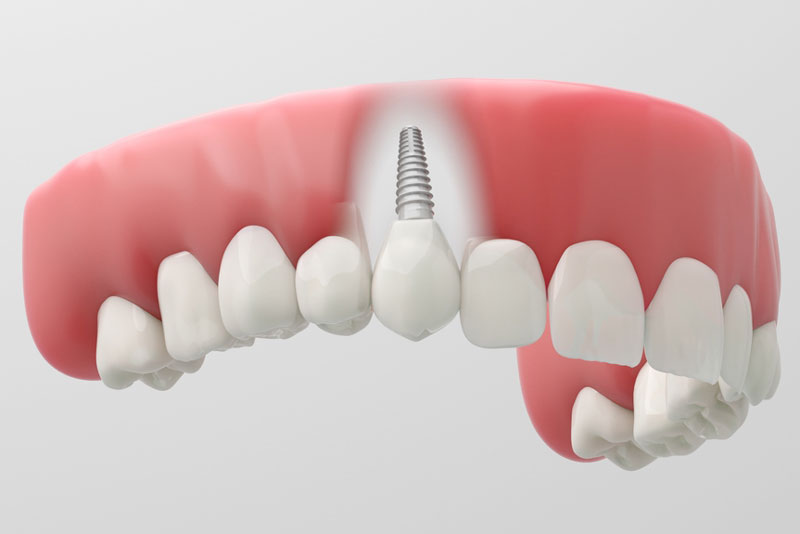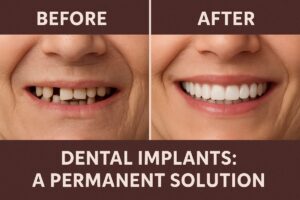Tooth implant problems can arise due to various factors, making it crucial to understand the challenges and risks associated with dental implants. Implantation is a complex process that involves both mechanical and biological elements working in harmony. Mechanical issues might include improper positioning or instability in the placement of the implant. These can lead to discomfort or failure if not addressed promptly. On the biological side, patients can experience infections, allergic reactions, or even rejection of the implant material, all of which contribute to potential complications. Understanding these factors can help dental patients make informed decisions about their oral health.
Delving deeper, it’s clear how critical it is to identify these issues early on. Tooth implant problems can range from minor inconveniences to major challenges if left unchecked. For example, peri-implantitis is a common inflammatory condition that can cause deterioration of gum tissue and bone. Additionally, certain systemic health conditions, like diabetes or osteoporosis, can adversely affect how the body heals post-surgery, complicating recovery. Armed with this knowledge, patients can actively engage in conversations with their dental practitioners about potential risks and suitable preventative strategies to ensure successful implantation.
Identifying the Symptoms: Diagnosing Implant Challenges
Recognizing the signs and symptoms of implant-related issues is a pivotal step towards resolution. Pain, swelling, and difficulty in chewing are some symptomatic red flags that may indicate underlying tooth implant problems. Monitoring these symptoms can provide early warnings, leading to more effective management of potential complications. Dental patients should maintain regular follow-ups and communicate any changes experienced post-implantation to their healthcare providers. Detailed assessments using advanced imaging techniques often offer crucial insights, allowing timely intervention.
Early diagnosis significantly improves the likelihood of successful treatment, reducing the risk of further complications. Even subtle symptoms such as persistent bad breath or a metallic taste might indicate infection. Proactive measures, including meticulous oral hygiene and routine dental check-ups, are highly recommended for maintaining implant health. By adopting a vigilant approach, dental patients can benefit from long-lasting results while minimizing the discomfort and stress associated with implant issues. A collaborative effort between patient and provider is key to achieving optimal oral health outcomes.
Innovative Treatment Strategies for Tooth Implant Solutions
A range of treatment strategies exists to address tooth implant problems effectively. Depending on the severity, both surgical and non-surgical options are available. Surgical interventions might include revision procedures wherein the implant is adjusted or replaced. Non-surgical solutions often focus on the management of infections through antibiotics or antiseptics, reducing inflammation and promoting healing. Incorporating these approaches flexibly can cater to individual patient needs, ensuring tailored and optimal results.
Additionally, advancements in sedation options, such as Nitrous Oxide and Oral Conscious Sedation, can enhance patient comfort during these procedures. These methods allow patients from Fort Wayne, IN, and Auburn, IN, to experience reduced anxiety and stress, fostering a relaxed treatment environment. Employing these techniques not only aids in procedural success but also boosts overall patient satisfaction and retention. Access to comprehensive, patient-centered care is fundamental for overcoming implant challenges and achieving desirable outcomes.
Proactive Measures for Durable Implant Health
Preventive measures play a pivotal role in prolonging the life and functionality of dental implants. Maintenance routines, including regular professional cleanings and diligent at-home care, are indispensable for avoiding complications. Furthermore, patients should be educated on the importance of limiting habits such as smoking and maintaining a balanced diet, as these can significantly impact implant longevity. By fostering a proactive approach, dental patients empower themselves to enjoy their implants’ benefits for years to come.
In conjunction with these practices, consulting with seasoned professionals like Dr. David Painter at Sedation & Implant Dentistry in Fort Wayne, IN, or Sedation & Implant Dentistry in Auburn, IN, ensures access to customized guidance and care. At our facilities, we approach dental implant solutions with a blend of expertise and empathy. Our focus is on creating a supportive environment where patient needs are addressed comprehensively. By prioritizing ongoing education and support, we enable our patients to overcome challenges and achieve their desired smiles effectively.
Are you ready to restore your smile at our skilled and trusted dental practice? Don’t wait to get the smile of your dreams with us. Get in contact with our doctor, Dr. Painter, and our exceptional team at our practice to schedule an appointment today!






